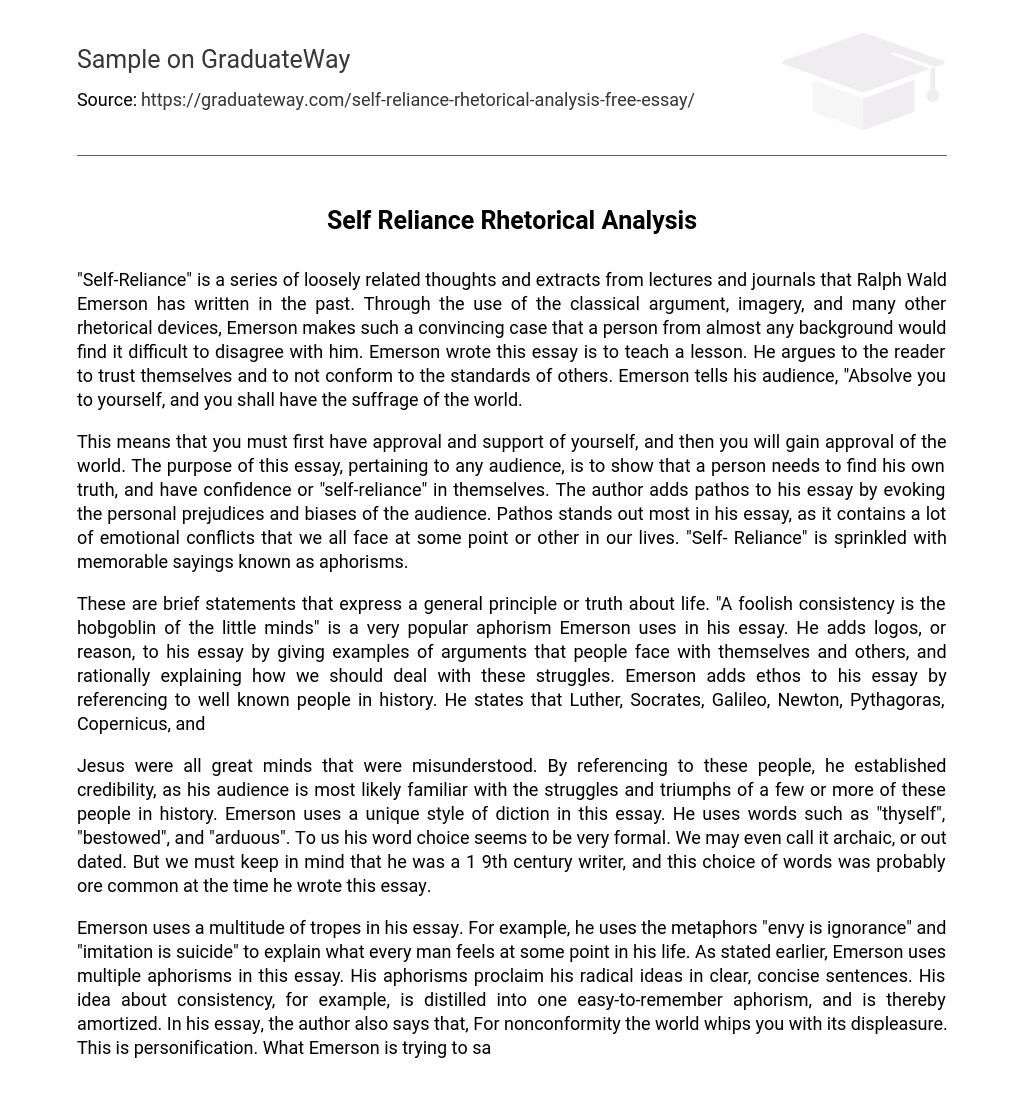“Self-Reliance” is a series of loosely related thoughts and extracts from lectures and journals that Ralph Wald Emerson has written in the past. Through the use of the classical argument, imagery, and many other rhetorical devices, Emerson makes such a convincing case that a person from almost any background would find it difficult to disagree with him. Emerson wrote this essay is to teach a lesson. He argues to the reader to trust themselves and to not conform to the standards of others. Emerson tells his audience, “Absolve you to yourself, and you shall have the suffrage of the world.
This means that you must first have approval and support of yourself, and then you will gain approval of the world. The purpose of this essay, pertaining to any audience, is to show that a person needs to find his own truth, and have confidence or “self-reliance” in themselves. The author adds pathos to his essay by evoking the personal prejudices and biases of the audience. Pathos stands out most in his essay, as it contains a lot of emotional conflicts that we all face at some point or other in our lives. “Self- Reliance” is sprinkled with memorable sayings known as aphorisms.
These are brief statements that express a general principle or truth about life. “A foolish consistency is the hobgoblin of the little minds” is a very popular aphorism Emerson uses in his essay. He adds logos, or reason, to his essay by giving examples of arguments that people face with themselves and others, and rationally explaining how we should deal with these struggles. Emerson adds ethos to his essay by referencing to well known people in history. He states that Luther, Socrates, Galileo, Newton, Pythagoras, Copernicus, and
Jesus were all great minds that were misunderstood. By referencing to these people, he established credibility, as his audience is most likely familiar with the struggles and triumphs of a few or more of these people in history. Emerson uses a unique style of diction in this essay. He uses words such as “thyself”, “bestowed”, and “arduous”. To us his word choice seems to be very formal. We may even call it archaic, or out dated. But we must keep in mind that he was a 1 9th century writer, and this choice of words was probably ore common at the time he wrote this essay.
Emerson uses a multitude of tropes in his essay. For example, he uses the metaphors “envy is ignorance” and “imitation is suicide” to explain what every man feels at some point in his life. As stated earlier, Emerson uses multiple aphorisms in this essay. His aphorisms proclaim his radical ideas in clear, concise sentences. His idea about consistency, for example, is distilled into one easy-to-remember aphorism, and is thereby amortized. In his essay, the author also says that, For nonconformity the world whips you with its displeasure. This is personification. What Emerson is trying to say is that there is common belief that if you are a nonconformist, meaning you do not follow generally accepted beliefs, then everyone in the world will think badly of you. Emerson does not believe this to be so. Emerson uses symbols and imagery of nature to support his claim of individuality. The “over soul” is one key element that Emerson illustrates in his essay, meaning that a person should look deep inside his heart and find his own truth.





